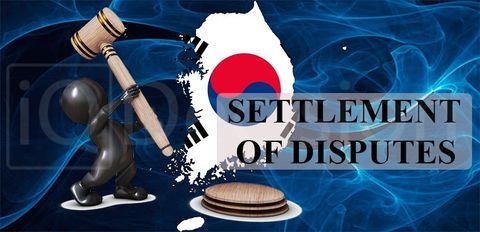Resolving business disputes with partners in South Korea often gives European and American businessmen a lot of trouble. This is due to significant cultural differences, as well as some nuances of local legislation. If you are only in the process of contracting with a local partner or setting up a company in that jurisdiction, we advise you to pay serious attention to drafting contracts. Inevitably there will always be disputes, where the parties can’t reach an agreement.
The contracts must necessarily take into account all the nuances and provide for a procedure for resolving a possible dispute in the future. If you have already had to deal with the need to resolve a dispute in South Korea, then this blog post will be at handy.
Judicial procedure
South Korea's civil dispute resolution procedure begins with the plaintiff's complaint with the first instance court. The complaint, including attachments, is filed with the court in the established electronic form by sending as attachments to the court’s e-mail address or through the court's online system for providing case materials and their administration. Typical claim forms can usually be found on the court's website.
The defendant also receives a copy of the complaint. He must state his counterarguments in writing and send them to court. If the defendant does not do this within the prescribed time limit (up to 30 days), the court may make a decision without oral hearing. You'll get a decision by post if there is not a hearing.
If the oral hearing takes place, both parties are given the opportunity to verbally voice their demands, submit evidence and question witnesses. Note that in a Korean court, a witness is criminally liable for knowingly giving false testimony and for refusing to testify.
All persons participating in the consideration of the case and those present at the open hearing are given the right to record the course of the proceedings using audio recording means. The main purpose of such a record is to further help prepare for the next court session in the event that the current one is postponed. Also, if you have to bring comments to the record, you can check it against the audio recording.
Appealing a court decision in Korea
If you're not satisfied with the decision at one level, you may appeal to the next. The losing party and disagreeing with the decision can appeal in South Korea to the second instance court, where the proceedings take up to six months. If a party still disagrees with the court's decision, then it can appeal to the Supreme Court.
NOTE: There is no class action lawsuit in Korea. The only exception to this rule can only be the consideration of disputes over securities.
In combination with the court or arbitration, the parties may agree to settle a business-related dispute through mediation in South Korea.
You can find out more information about the judicial system of this jurisdiction by signing up for a consultation on resolving business disputes in South Korea. To do this, fill out the quick contact form, and our specialists will answer all your questions and provide a range of necessary consulting and accompanying services.

















